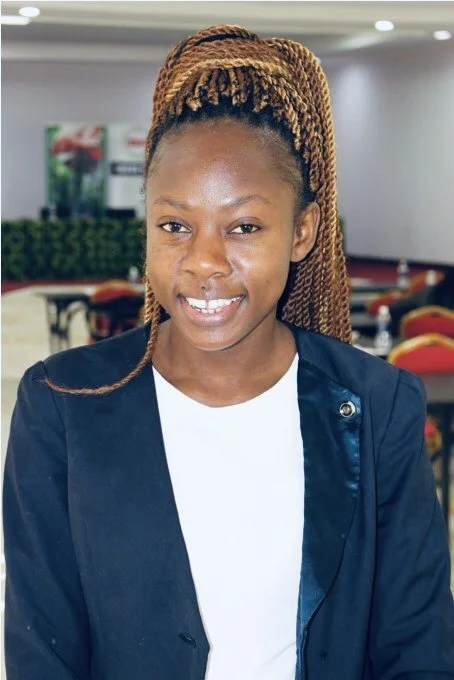YPARD Global Café Series: Empowering youth with resource mobilization strategies for agriculture development
Between 23 April and 16 May 2025, the Young Professionals for Agriculture Development (YPARD) hosted a three-part Global Café Series focused on resource mobilization for youth leaders in agricultural development. The series aimed to equip young professionals with practical strategies, insights, and networking opportunities to effectively secure funding, build partnerships, and sustain donor relationships.
Here are the insights from the sessions meant to help inform the way forward for youth leaders:
Sessions 1 & 2 | Unlocking Opportunities: Resource Mobilization for Youth Leaders in Agricultural Development
The first two sessions provided youth leaders with a comprehensive understanding of funding opportunities available for agricultural development initiatives.
Key discussion areas included:
Funding Landscapes – Exploration of grants, sponsorships, crowdfunding, and innovative financing models tailored for agricultural projects.
Proposal Writing and Pitching – Practical guidance on crafting compelling funding proposals and delivering persuasive pitches to potential donors.
Managing finances – Techniques for professionally handling resources for agrifood systems transformation.
Participants engaged in discussions on overcoming common challenges in resource mobilization, including limited access to information and capacity-building for financial sustainability. For example, poor visibility can be countered by reporting every prior activity on the YPARD website and leveraging the platform and experiences of the YPARD network.
Session 3 | Beyond the grant: Building and Sustaining Strong Donor & Partner Relationships
This session, led by Benjamin Abugri, Knowledge Management, Learning and Communications Cluster Lead for FARA, and moderated by Sussana Phiri, YPARD Zambia's Country Representative, emphasized the importance of long-term donor engagement and introduced five core principles for fostering strong and sustainable relationships with donors and partners:
1️⃣ Value Alignment & Mutual Benefits – Ensuring partnerships are built on shared objectives and complementary strengths.
2️⃣ Transparent, Story-Driven Communication – Using authenticity and compelling narratives to establish trust and connection with donors.
3️⃣ Stewardship & Strategic Engagement – Maintaining donor relationships through consistent interaction, accountability, and meaningful collaboration.
4️⃣ Co-Creation & Local Ownership – Promoting participatory approaches that empower communities and encourage locally driven solutions.
5️⃣ Innovation & Thought Leadership – Positioning youth-led organizations as visionary leaders in agricultural development by pioneering innovative strategies and solutions.
Throughout the session, participants gained insights into effective donor management, long-term sustainability in resource mobilization, and best practices for fostering lasting partnerships in the agricultural sector.
Key Takeaways and Impact
This Series empowered youth leaders by providing actionable strategies to:
✅ Always apply for funding opportunities for agricultural initiatives. For example, constantly mapping funding opportunities available from relevant donors and submitting applications on time.
✅ Develop compelling proposals to engage donors and stakeholders. Ensuring proposals are comprehensive and speak to the values of the funders is one way to achieve this.
✅ Establish and nurture strong partnerships for long-term project sustainability. Consistently providing feedback to donors is a good example of how to nurture strong relationships.
✅ Leverage storytelling and transparency to enhance trust and donor engagement. For example, by compiling and sharing raw experiences of stakeholders with donors, they(donors) may appreciate more fondly the essence of their role in fostering positive change.
✅ Promote the role of youth leadership in agriculture as a force for innovation and systemic change. For example, outlining the successes of youth movements in driving change in the 21st century can help donors consider youth as partners for development.
In her closing remarks, YPARD Global Director, Genna Tesdall, reiterated the importance of continued youth collaboration and strategic engagement in shaping the future of agrifood systems and how sustainable resource mobilization can bring that to fruition.
YPARD’s Global Café Series on Resource Mobilization successfully fostered discussions on financing youth-led agricultural projects while equipping participants with practical tools to navigate funding challenges. The insights gained from the sessions serve as a foundation for strengthening youth engagement in agricultural development and driving impactful change in food systems worldwide.
About the Author
Sussana Phiri is an alumnus of the Global Change Makers School, where she pursued Project Management for Change Makers (2020). She is also an alumnus of the Global Leadership Fellows Programme (GLFP ‘19), which focuses on imparting Strategic Management and Science Communication skills. Her most recent achievement is becoming the Young Professionals in Agriculture Development (YPARD) Zambia country representative.
Sussana is currently working with CA4SH as a Communications and Coordination intern through CIFOR-ICRAF, and is a member of the #Youth4Soil Initiative.








